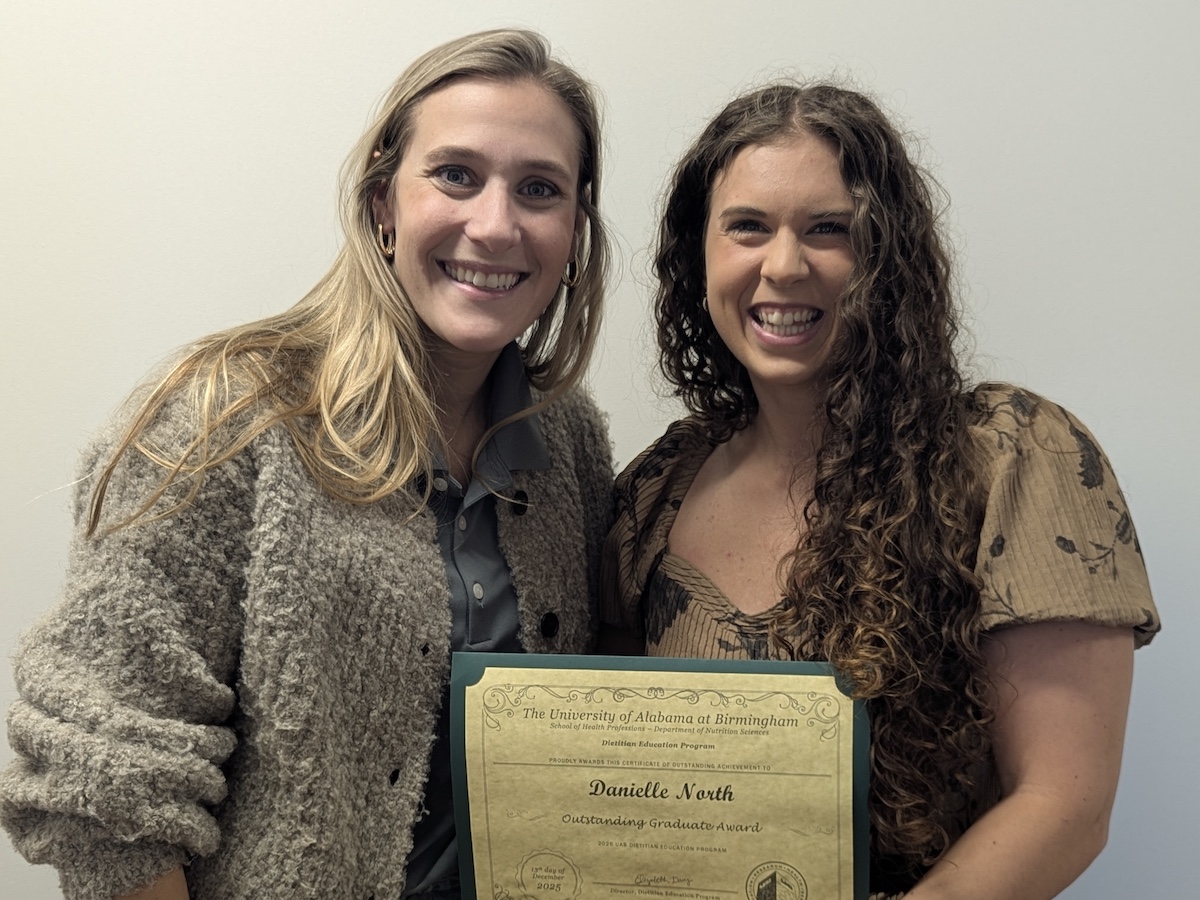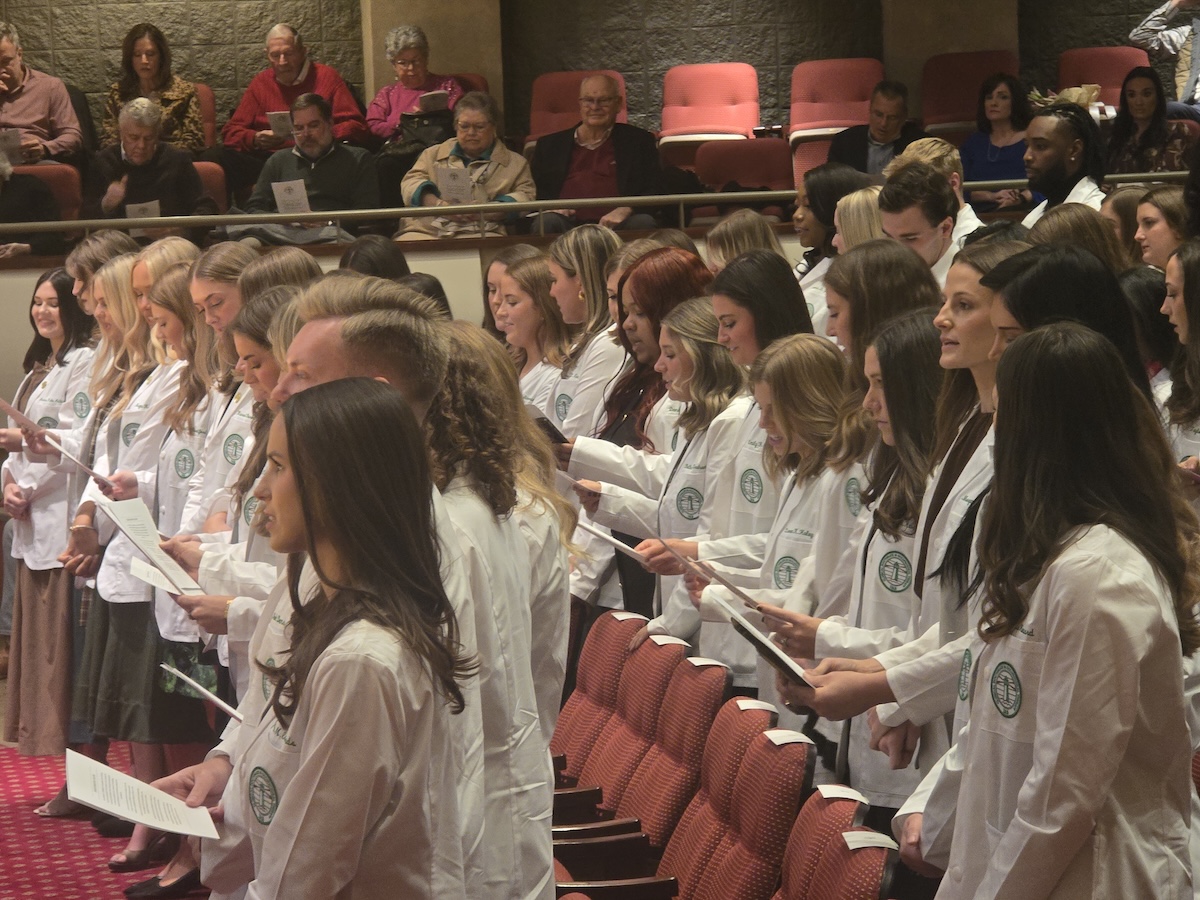In the fall of 2023, the UAB School of Health Professions launched an undergraduate program in Disability Studies and Rehabilitation Science. This year, the program unveiled a minor option to the program.
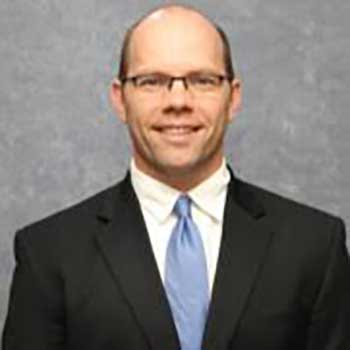 Christopher Hurt, Ph.D.“There aren’t that many undergraduate disability studies and rehabilitation science programs in the United States, and many are focused on vocational rehabilitation, whereas we wanted to tailor our program around the intersection of disability, physical activity and health,” said Christopher Hurt, Ph.D., associate professor in the Department of Physical Therapy and director of the B.S. in Disability Studies and Rehabilitation Science program (RHB). “We are the only one in the state specific to disability, community mobility and research.”
Christopher Hurt, Ph.D.“There aren’t that many undergraduate disability studies and rehabilitation science programs in the United States, and many are focused on vocational rehabilitation, whereas we wanted to tailor our program around the intersection of disability, physical activity and health,” said Christopher Hurt, Ph.D., associate professor in the Department of Physical Therapy and director of the B.S. in Disability Studies and Rehabilitation Science program (RHB). “We are the only one in the state specific to disability, community mobility and research.”
The program’s origin begins with a subcommittee in Physical Therapy that Hurt was a member of that identified something was missing in academic offerings. Many similar programs are at smaller institutions, providing an opportunity for UAB, particularly within the department of Physical Therapy to offer a program that can bring students in and discuss issues related to disability and rehabilitation through the lens of PT.
Hurt and his team began building the program by thinking about the curriculum and designing it in a specific way so that students would have all the course prerequisites required to apply to a graduate program in health professions, like PT school, while also incorporating partners of the disability community here in Birmingham.
*One of those important partners is James Rimmer, Ph.D., inaugural Lakeshore Foundation Endowed Chair in Health Promotion and Rehabilitation Sciences, director of the UAB Research Collaborative and director of the National Center on Health, Physical Activity and Disability (NCHPAD).
“There is a large disability advocacy community in Birmingham, and the Lakeshore Foundation and Dr. Rimmer are a part of that,” said Hurt. “That’s been a good platform for us and our program because there is already this kind of need and understanding of the importance of it within the city of Birmingham.”
Curriculum By Design
“We were thoughtful in designing our curriculum to help students that are going into PT and OT to have the classes they need pre-built into the program,” said Hurt. “They don’t have to seek out which prerequisites they need.”
Students also have room within the major to take outside electives, so if there is a course they need as a requirement for attending graduate school, they can take it upon approval from the director. For example, if a student was planning on going to Physician Associates (PA) school and they needed organic chemistry as an undergrad requirement, they can take it within the RHB major.
The program has unique courses within the major that are designed to provide students with experience on issues related to inclusion science and advocacy, mobility, and scientific literacy. Hurt and his faculty are working to mold students to be well rounded and overall good consumers of science.
There are several classes where students are trying to understand aspects related to scientific inquiry, clinical assessments and topics on the cutting edge or disability or rehabilitation.
“No matter where you go, PT, OT, or PA, all of that is based on assessments,” said Hurt. “We want students to understand where these assessments come from and how we know what’s good vs. what’s bad.”
The program also aims to get students involved in the intellectual life on campus. In the introduction to rehabilitation science class, RHB 210, they bring professionals in from across the spectrum of disability and rehabilitation to let students see the careers that are possible.
They also offer a seminar class, RHB 430, where encourage students to engage in the intellectual life of UAB, which is a research intensive university. This year they have had scientists from PT and OT speak. Students are also encouraged to go to many talks outside of their program including the Center for Engagement in Disability Health and Rehabilitation Sciences (CEDHARS) Disability Health Symposium that occurred on February 27th and 28th.
The undergraduate major in Disability Studies and Rehabilitation Science is regionally unique. If fact, as part of the Academic Common Market, a consortium of states in the Southeast that offer tuition savings to college students, both Louisiana and Tennessee allow their students to qualify for instate tuition while taking this major at UAB. To qualify, a state has to evaluate their inventory of majors at their state universities and if they do not have anything equivalent, the out-of-state student qualifies for in-state tuition.
The Ideal Student
The Disability Studies and Rehabilitation Science program is intended to provide a holistic view for students who wish to work in any health professions. They want their students to approach care from the lens of disability, scientific literacy and rehabilitation. To accomplish this, they offer classes related to mobility and design, aging and mobility, and classes where students look at the overall health care system in the United States, and learn about the components that make that it up.
At its core, individuals who want to pursue a career in health care begin with being interested in helping others. Immediately after that, the ideal student is someone who is curious, someone who looks at the state of knowledge now and wants to help take it where it needs to go.
Matthew Taylor – Philosophy + Disability Studies Rehab Science Major
“Disability advocacy is something that I have always felt strongly about, and I am also extremely passionate about medicine, anatomy, and physiology so when I came across the Disability Studies & Rehabilitation Science major, I jumped at the opportunity to have a unique education experience and to grow with a new and budding program.”
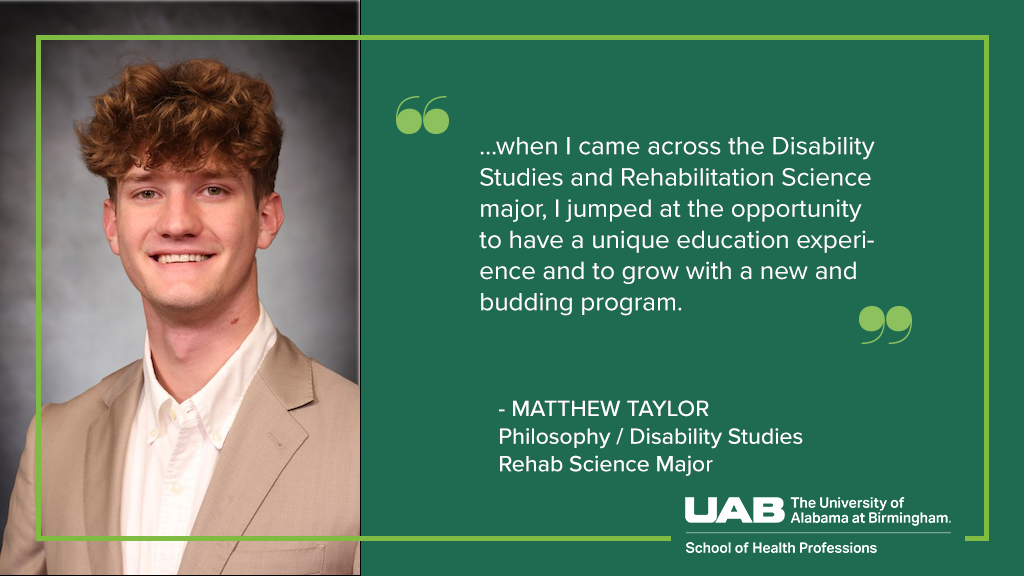
In the Future
After students graduate, they could work in the disability space and that could mean working locally at the Lakeshore Foundation or regionally for the Centers for Disease Control and Prevention, or state level agencies who focus on helping individuals with a disability to help them live to their fullest potential.
Students who want to go on to PT, PA or Occupational Therapy schools, will have a long-term goal that this major can potentially help generate the foundation for them to be strong students and competitive as they move on to their graduate degree.
“In the future, I want to be able to see that the students that come out of our major, are very competitive going into PT and OT or other health professions, and that they’re recognized for being well prepared for the next step of their academic journey,” said Hurt. “Scientifically well trained individuals that can contribute right away in terms of whatever the mission is of the organization they’re working in.”
With a heavily science-based curriculum, the program wants its students to come out and have the ability to sift through evidence and figure out what’s the best way to help the individual they’re working with. Students that are interested in the scientific component and wish to do research, could go on to get a Doctor of Philosophy in rehabilitation science or an affiliated field.
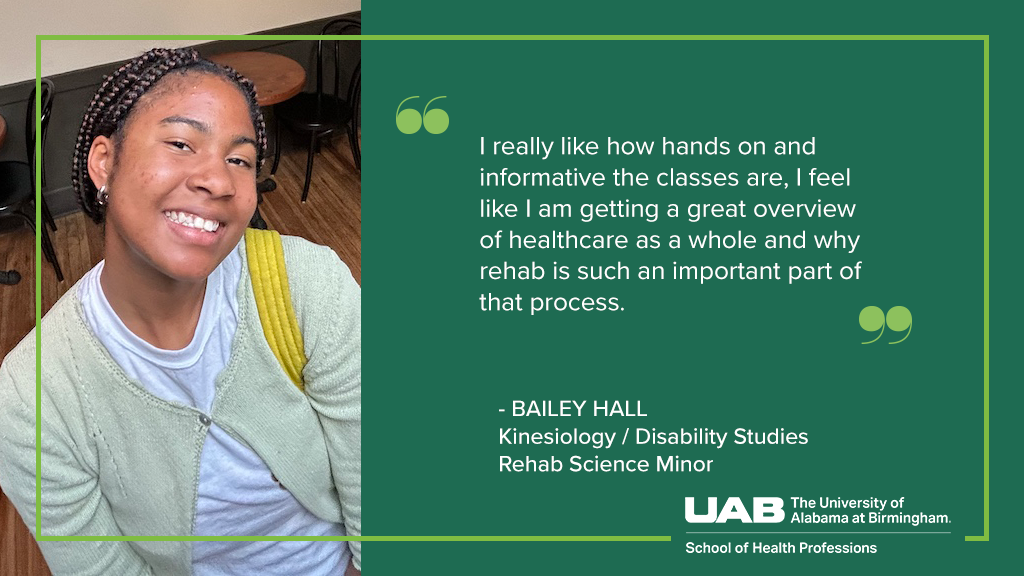
New Minor
This year the program unveiled the minor to the program.
The minor itself is a great option for a wide variety of individuals within our majors on campus such as biomedical engineering who are interested in building devices for people with a disability; kinesiology who are who are interested in improving the health and wellness of individuals with disability; and public health majors who want to develop educational health campaigns for individuals with disabilities. This minor helps connect those students to the idea around disability and understanding the population they might be working with or for as they design these devices.
“This minor would be appropriate for any student who wants to get that extra education on disability and rehabilitation along with all our other undergraduate school of health professions majors, the minor serves as a nice compliment for those students.”
Bailey Hall – Kinesiology Major
“I chose a minor in Disability Studies and Rehabilitation Science because I thought it was a perfect addition to my education,” said Bailey Hall, majoring in kinesiology. “I have an interest in helping people with disabilities and this minor felt like the perfect addition to helping me do just that. I really like how hands on and informative the classes are, I feel like I am getting a great overview of healthcare as a whole and why rehab is such an important part of that process.”
To learn more, visit the Disability Studies and Rehabilitation Science program and minor website.
